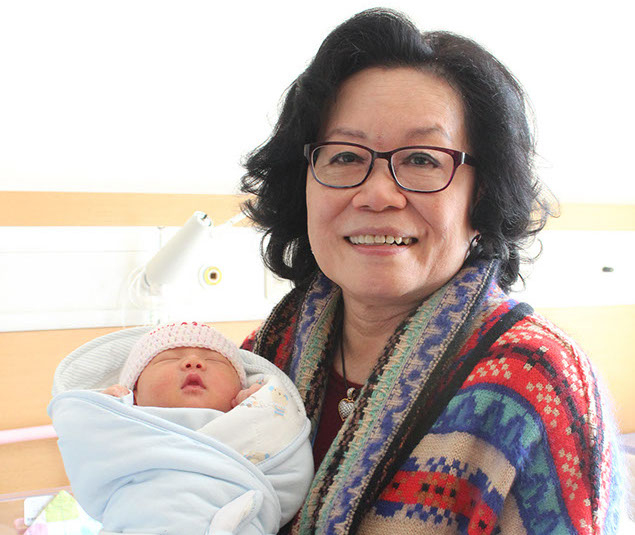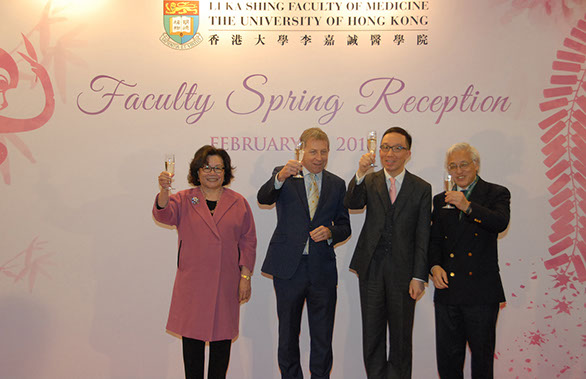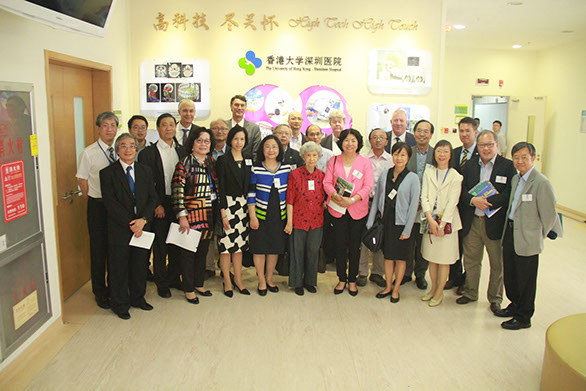When Professor Grace Tang was elected Dean of the Faculty of Medicine from 1998 to 2001, she was handed the controversial task of revamping a medical curriculum that had been largely unchanged since 1887. The plan was to edge away from didactic teaching and the need to memorise masses of information, towards problem-based learning (PBL), which asked students to work together on cases, draw on what they knew collectively and then try to fill the gaps.
Detractors worried students would not learn the necessary knowledge. Reformers worried students were being crushed by rapidly-expanding advances in medical knowledge and the need to memorise it all. Since the new curriculum had been approved under her predecessor, Professor Chow Shew-ping, Professor Tang saw no need for further debate. Her job was to make it work.
It was then that she uttered a phrase many colleagues still associate with Professor Tang, a phrase that also sheds light on her iron will: “Failure is not an option”.
If it sounds like a military command, it comes from a place of sound practicality. “I said this because students cannot start all over again. You can’t say, let’s do it like this, perhaps I give you three years to learn by yourself and then you come back for two years and then you graduate as a doctor. That’s very dangerous. So it cannot be like a scientific trial to see which one is better. Once you start on something like this, it must work,” she said.
![]() Ever since I entered medical school, I have been in public hospitals, I know what they ought to be like. And I never cease to ask, I never cease to learn.
Ever since I entered medical school, I have been in public hospitals, I know what they ought to be like. And I never cease to ask, I never cease to learn. ![]()
Professor Grace Tang Wai-king
Making it work
With that kind of determination, Professor Tang and the Faculty managed to do a magnificent job of transitioning to PBL – other medical schools around the region came to regard HKU as a model for their own curricula and the Asian Medical Education Association was established under HKU’s chairmanship.
But the mantra was not forgotten. Professor Tang has put it to use again as the first Chief Executive of the HKU-Shenzhen Hospital, a project that has also had its share of detractors and challenges but which, like PBL, has been chalking up successes (see Knowledge Exchange).
She came to that role in a roundabout way. After her deanship, she took up the presidency of the Hong Kong Academy of Medicine in 2005 and initiated training workshops for health professionals from Mainland China. (She also acquired a law degree during this period – her energy is boundless.) At the end of her term, in 2008, she went to Beijing to bid farewell to the Minister of Health and brought with her a request from the then-Dean of Medicine, Professor Lee Shum-ping, for a hospital. The HKU-Shenzhen Hospital was granted soon after. After some deliberations, Professor Tang agreed to be its Chief Executive in 2011.
By her own reckoning, she was an unusual choice, given she had no experience running a hospital. “But I am not intimidated at all because I have support at HKU and I have assistance from a general manager, a finance manager, human resources manager and so on. And most importantly, this is a public hospital. Ever since I entered medical school, I have been in public hospitals, I know what they ought to be like. And I never cease to ask, I never cease to learn,” she said.
Pulling out the stops
Under her watch, the Hospital has gone from zero patients to more than 4,000 a day, attracted doctors from Hong Kong and the UK who want to help China to develop its healthcare system, and seen its practices, such as its booking system, adopted by other hospitals in China.
At the same time, Professor Tang has been fierce in insisting the Hospital’s practices and finances are ethical and above board – an effort that is driven by a desire to protect the reputation of both the Hospital and HKU, where she has spent her entire academic professional life. “For this Hospital, ‘failure is not an option’ is really about the name of HKU and its reputation,” she said.
Her own reputation as tough, principled and uncompromising remains unshaken, but there is also another side, said Professor Patrick Chu, who joined the Hospital as Chief of Service of Medicine in 2012.
“Grace takes no prisoners, but the other thing about her is she doesn’t hold grudges. And she may say failure is not an option, but if you are about to fail she will pull all stops out to help you. She has a good and kind heart,” he said.
And one that, after a 50-year long association with HKU as student and staff member, will be earning a well-deserved break.
Back

“Failure Is Not An Option”
Professor Grace Tang Wai-king has been in the hot seat for some of HKU’s biggest
challenges – in particular, reforming a century-old medical curriculum and getting the
HKU-Shenzhen Hospital off the ground. As she prepares to retire, she reflects on
her achievements.


From left: Former Dean of Medicine Professor Grace Tang, President and Vice-Chancellor Professor Peter Mathieson, Dean of Medicine Professor Gabriel Leung and Provost and Deputy Vice-Chancellor Professor Paul Tam at the Li Ka Shing Faculty of Medicine's Spring Reception 2016.
Professor Grace Tang (third from left in the first row), the first Chief Executive of the HKU-Shenzhen Hospital, arranged a tour of the Hospital for HKU Council members and Deans.
Professor Grace Tang and the first baby born at the HKU-Shenzhen Hospital.


